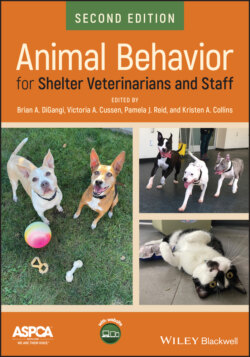Читать книгу Animal Behavior for Shelter Veterinarians and Staff - Группа авторов - Страница 41
1.6.3.7 Lack of Predictability and Control
ОглавлениеLack of predictability and control over contingencies are known challenges to welfare (Taylor and Mills 2007). Dogs living on the streets or in homes build up expectations and associations in relation to known environments. The imposition of daily cleaning and feeding and walking schedules as well as consistent interactions can offer shelter dogs a sense of predictability. However, excessive monotony is a risk factor for dogs as well. Creating motivations for dogs to perform behaviors for particular rewards could enhance welfare, and positive affective states could be achieved as a result of self‐directed problem solving (McGowan et al. 2014). Identifying potential shelter stressors provides an opportunity to ameliorate them and make them predictable, controllable, or decreased in terms of intensity, frequency, or duration. In shelters, control can be diminished by physical restriction, for example, in terms of space, that limits agency to flee or retreat. As a result, frustration or appetitive behaviors may appear as well as new, possibly undesirable behaviors.
